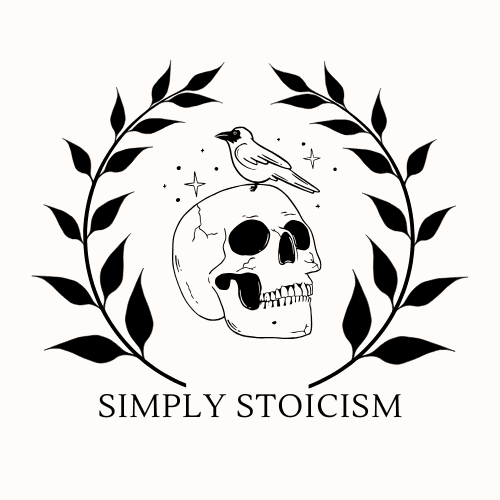Top 10 Stoic Quotes and How to Apply Them to Your Life
These top 10 Stoic quotes offer timeless advice on how to live with resilience, purpose, and peace. Get insights from Marcus Aurelius, Seneca, and Epictetus, plus tips on how to apply their wisdom today.

Jon High
·
Nov 2, 2024
Life can feel like a never-ending treadmill—running faster but staying in the same spot, facing obstacle after obstacle. The Stoics, though, weren’t about to let life’s chaos keep them down. They found freedom in controlling their responses to life instead of trying to control life itself. Their wisdom still rings true, and here are ten powerful Stoic quotes to challenge your perspective and help you approach life with resilience, confidence, and a sense of calm that’s hard to shake.
1. “You have power over your mind—not outside events. Realize this, and you will find strength.” — Marcus Aurelius
Translation: This quote is the ultimate “focus on what you can control” mantra. Marcus is telling us that while the world can—and will—spin out of control, we always have the power to choose our mental state. We can’t change a lot of what happens around us, but we can change how we let it affect us.
How to Use It: Think about all the stress, irritation, or disappointment you experience over things you can’t change—how much mental energy are you losing to stuff that’s out of your hands? Next time you feel anger or anxiety building up over something like an unfair decision or a rude person, stop and think, “Can I control this?” If the answer is “no,” shift your focus to something you can change: your reaction. That’s where your true strength lies.
2. “We suffer more in imagination than in reality.” — Seneca
Translation: Seneca is saying that most of our suffering doesn’t come from real events—it comes from our mind creating scenarios that don’t even exist. We worry about what might happen, creating anxiety and fear over situations that often never play out. It’s a reminder that our minds can be both our biggest asset and our worst enemy.
How to Use It: Catch yourself when you’re spiraling into worst-case scenarios. Ask, “Is this actually happening right now, or is this just my mind running wild?” Sometimes, we spend more time stressing over the future than we do dealing with the present. Recognizing that most of your worries are imagined can keep you grounded, focused, and a lot less stressed.
3. “The best revenge is not to be like your enemy.” — Marcus Aurelius
Translation: Marcus Aurelius is throwing down a challenge here: When someone wrongs you, don’t stoop to their level. People who lash out, gossip, or disrespect others are often acting out of their own issues. By choosing not to react in the same way, you’re proving that their negativity can’t bring you down.
How to Use It: Instead of reacting to someone’s bad behavior with more of the same, take a step back. Ask yourself, “What would make me proud of how I handled this?” This doesn’t mean you’re letting people walk all over you; it means you’re not giving them power over your peace. The best “revenge” isn’t anger or resentment—it’s staying true to yourself and your values.
4. “He who fears death will never do anything worthy of a living man.” — Seneca
Translation: Seneca’s calling out our obsession with playing it safe. When we’re afraid of death or failure, we limit ourselves, staying in our comfort zones and avoiding risks. But by doing so, we miss the chance to live fully. Seneca is saying that to live a truly meaningful life, we have to move past the fear of mortality and dive into experiences that make life worth living.
How to Use It: Recognize what fears hold you back—whether it’s fear of failing, fear of judgment, or even fear of loss. Instead of letting that fear steer your choices, ask, “If I weren’t afraid, what would I do?” Then go do it. Life’s too short to live halfway.
5. “It’s not what happens to you, but how you react to it that matters.” — Epictetus
Translation: Epictetus’s message is simple but powerful: Life is full of setbacks, but our reactions define us, not the setbacks themselves. It’s our response to events—not the events—that shapes our character and, ultimately, our life.
How to Use It: When life throws you a curveball, don’t focus on the problem. Instead, focus on what you can learn from it, or how you can handle it with strength and grace. Ask, “How do I want to remember handling this?” This isn’t about ignoring your feelings; it’s about choosing a reaction that aligns with who you want to be.
6. “The more we value things outside our control, the less control we have.” — Epictetus
Translation: Epictetus reminds us that putting our happiness in the hands of things we can’t control—like other people’s opinions, our social status, or material possessions—leaves us at the mercy of the world. It’s a trap, a constant game of chasing external validation, which keeps us from true peace.
How to Use It: Next time you’re feeling anxious about something you want (or don’t have), stop and ask if it’s within your control. Instead, focus on values and goals you can directly influence: personal growth, kindness, resilience. By centering your worth on things you control, you stop being a puppet of external factors.
7. “If it is not right, do not do it; if it is not true, do not say it.” — Marcus Aurelius
Translation: Marcus is laying down a code of conduct for life. He’s saying that right actions and honesty should be your compass. Don’t do things just because they’re easy or convenient; do them because they’re right. And don’t say things to manipulate or fit in; say them because they’re true.
How to Use It: When you’re about to say something or take an action, ask yourself, “Am I doing this because it’s right, or because it’s easy?” It’s about building integrity by consistently acting in line with your values, even when no one’s watching. Think of it as a small step toward self-respect that pays big dividends over time.
8. “The happiness of your life depends upon the quality of your thoughts.” — Marcus Aurelius
Translation: Marcus is saying that if you’re constantly feeding your mind with negative, anxious, or judgmental thoughts, you’re setting yourself up for a miserable life. Our thoughts are like seeds—whatever we plant grows. If you want a life filled with peace and joy, it starts with consciously cultivating those thoughts.
How to Use It: Notice your mental habits. Are you always finding the negative in situations? Do you dwell on setbacks? Start catching these patterns and challenge them. Replace complaints with gratitude, and fear with curiosity. This isn’t about “positive thinking”; it’s about choosing thoughts that make your life better.
9. “Don’t explain your philosophy. Embody it.” — Epictetus
Translation: Epictetus is telling us that actions speak louder than words. Rather than trying to convince others of our beliefs or justify our values, we should let our behavior do the talking. Living with integrity and consistency is the best way to show what we believe.
How to Use It: Instead of explaining or defending your decisions to people, just live by them. Be kind, patient, and strong, not to prove a point but because it’s who you are. When you act from a place of authenticity, you inspire others to do the same, without saying a word.
10. “What stands in the way becomes the way.” — Marcus Aurelius
Translation: Marcus’s line here is practically a Stoic mic drop. Obstacles aren’t interruptions in life; they’re part of the path. Each obstacle we face gives us the chance to learn, to grow, and to become stronger. Rather than resenting challenges, he says we should see them as the road forward.
How to Use It: When you’re faced with a setback, take a step back and ask, “What can I gain from this?” Is there a lesson here? A skill you can strengthen? This shift in mindset doesn’t just help you handle difficulties; it makes them part of your progress. After all, each obstacle that you overcome adds another layer of resilience.
Make These Stoic Insights Your Mental Toolkit
These Stoic quotes aren’t just words to live by—they’re tools to thrive by. Each one gives us a way to approach life with a little more grit, a lot more patience, and maybe even some humor. Life’s going to be messy, unpredictable, and unfair at times, but by shifting your mindset to one of strength, resilience, and acceptance, you’re ready for whatever it throws your way. Pick a quote that resonates with you, try applying it this week, and see how much easier life feels.
FAQs
1. Can Stoicism make me indifferent?
Not at all. Stoicism isn’t about ignoring emotions; it’s about learning to manage them so they don’t control you. It’s about facing life’s ups and downs with calmness and reason.
2. How do I start applying Stoic principles?
Pick one quote that resonates with you and commit to living by it for a week. See how it changes your perspective and the way you handle daily challenges.
3. Is Stoicism just about enduring hardships?
Nope. Stoicism is about finding peace in self-control and joy in simplicity. It’s about focusing on what you can control and letting go of what you can’t.



